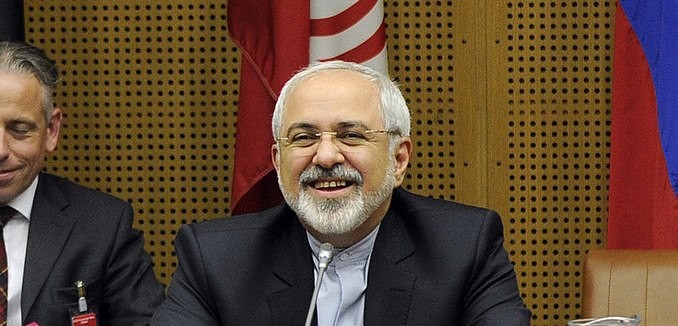Iran has received more than $10 billion in sanctions relief in cash and gold since reaching an interim nuclear deal with world powers in November 2013, The Wall Street Journal reported Friday.
These payments, which came from unfrozen assets in numerous countries, were favored by Iran as they offered “quick access to its funds and because of complications in wiring money to Tehran,” U.S. officials told the Journal.
Since the interim deal was implemented in January 2014, Iran has been entitled to some $115 billion in sanctions relief. However, Iran “has struggled to access much of its money through more traditional financial channels, such as transfers through foreign banks that once were off limits,” according to the Journal.
Negotiators agreed to give Iran monthly payments of $700 million during nuclear talks, with the country recouping a total of $11.9 billion over 17 months. “To enable the flow of the $700 million monthly payments, the White House signed a series of legal waivers authorizing countries to unfreeze Iranian oil revenues,” the Journal reported, citing U.S. officials. “Without the waivers, those countries in many cases would have been in violation of U.S. secondary sanctions.”
The transfer of the payments in cash and gold was “the kind of financial relief that made Iran’s leaders eager to complete the international nuclear accord,” the Journal added. Some of these payments took place during the negotiations and some took place after the deal was reached. Washington authorized a previously unreported $1.4 billion payment to Iran between July 2015, when the deal was announced, and January 2016, when implementation began, according to U.S. officials.
The Treasury Department has long been wary of large cash payments because “they could be used by criminal gangs, narcotics traffickers or terrorist organizations,” the Journal added.
Legislators have also warned that Iran could use the cash to pay its proxies, including the Assad regime, the Lebanese terrorist group Hezbollah, and Houthi rebels in Yemen. (In July 2015, Iran extended to Syrian dictator Bashar al-Assad a $1 billion line of credit. A month later Iran’s foreign minister and chief nuclear negotiator, Mohammad Javad Zarif assured Hezbollah’s leader that the nuclear deal would present a “historic opportunity” to confront Israel.)
Rep. Ed Royce (R – Calif.), chairman of the House Foreign Affairs Committee, told the Journal that “Forking over cash and gold to the world’s leading state sponsor of terror is incredibly dangerous.” Royce sponsored a bill that would outlaw cash payments to Iran.
While the U.S. didn’t allow the cash payments to be converted into dollars, it placed no other restrictions on the transactions. The money came from frozen Iranian oil revenues in China, Japan, Italy, Greece, and South Korea.
The $10 billion total doesn’t include the $1.7 billion that the U.S. transferred to Iran last year at the same time that Iran released four American hostages. The timing of that transfer, which the White House said was meant to settle a decades-old dispute over a failed arms deal, prompted many critics to label it a ransom payment.
While Iran mothballed portions of its nuclear program to abide by the accord, recently-publicized side deals reportedly allow Iran to exceed limits on nuclear material that could be used in the production of a weapon without penalty.
[Photo: Bundesministerium für Europa, Integration und Äusseres / Flickr ]




